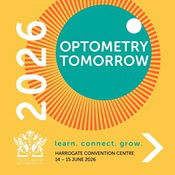Autism, signs of Autism, and links on tips on better and more productive interaction.
We thank Christy Clawson from Wondermoms for bringing to our attention the useful links that could assist primary care professionals in their work.
Signs of Autism
Although every individual on the autism spectrum has different needs and displays different symptoms, there are signs that you can look out for if you think that you or someone you know might have autism.
If after reading the information below, you suspect that you or someone you know has autism, please visit our Getting A Diagnosis page for more detailed information on what to do next. If you suspect that your partner may show signs of autism, please visit our Partners page for more information.
Signs of autism in pre-school age children
Spoken language
•Delayed speech development. You can assess their speech development by comparing it with other children of the same age. Speaking less than 50 words by the age of two or not speaking at all would be considered as delayed speech development
•Frequent repetition of certain words or phrases
•Monotonous or flat sounding speech
•If a child can speak in sentences but prefers to communicate using single words or short phrases
Interacting with others
•Not responding when their name is called
•Rejecting cuddles initiated by their family members (although they might initiate cuddles themselves)
•Having an unusually negative reaction when asked to do something
•Being intolerant of people being in their personal space
•Little or no interest in interacting with others (of their own age or otherwise)
•Not enjoying activities such as birthday parties or play areas which are busy and noisy
•Rarely using facial expressions or hand gestures when communicating
•Avoiding eye contact
Behaviour
•Repetitive movements such as flapping their hands, rocking, jumping up and down or flicking their fingers
•Playing with toys in a repetitive way, such as placing toys in size order or colour groups rather than showing more creative play
•Preferring to have a familiar routine and becoming upset if there is a change
•Having a strong like or dislike for certain foods, this may be due to colour or texture as much as taste
Signs of autism in school age children
All of the symptoms listed above will also apply to school-age children, with some additions. Also, it is likely that sensory needs will become more apparent at this age. It may be that they become upset in noisy, echoic or very bright places, their methods of sensory stimulation (hand flapping, rocking etc) are more pronounced, they are becoming more particular about what foods they eat etc. At this age you might begin to notice an aptitude for certain things such as Maths, English or Art. A common misconception is that autism is a learning difficulty but this is not the case and people on the spectrum can be exceptionally bright.
Spoken language
•Preferring to avoid using spoken language at all
•A reluctance to form new sentences or expand their speech and sticking to pre-learned phrases
•Difficulties in holding a two-way conversation and seeming to ‘talk at people’
Interacting with others
•Taking what people say to them completely literally
•Difficulties understanding sarcasm, metaphors, and figures of speech
•Negative reactions, when asked to do something, may now be more obvious and challenging
•Not being aware of other people’s personal space or being unusually intolerant of people coming into their personal space
•Having few friends and/or a lack of desire to make friends
•Seemingly unaware of normal social interaction such as saying hello or goodbye
Behaviour
•Preferring to play with objects rather than people
•Developing a highly specific interest in a subject or activity
•Becoming extremely attached to a certain toy or object
•Reluctance or refusal to go to school
•Behaviour may be becoming more challenging. When upset, you might see violence, aggression, shouting, self-injurious behaviour, inappropriate touching, smearing or pica (eating non-edible items)
Signs of autism in teenagers
It is sometimes the case that the symptoms of autism or Asperger’s go unnoticed during childhood but become more apparent during the teenage years. For everyone, this transition from childhood to teens can be confusing and daunting, with moving up to high school, hitting puberty, beginning to develop deeper relationships and people having more expectations of how you should behave and what you should be achieving. Put an autism spectrum condition on top of that and it is little wonder that it can become overwhelming.
Teenagers with autism can often become depressed and withdrawn. It may be that as a child, their symptoms didn’t affect them so much because they weren’t aware of them and other children their age didn’t notice, but as they become older, they become more aware of themselves and their differences to other people their age such as:
•Struggling to maintain or not taking turns in a conversation
•Talking a lot about one particular subject
•Becoming confused by slang language or taking things literally
•Have a very good vocabulary and talk in a formal, old-fashioned way
•Finding it hard to follow instructions or join in with games
•Not understanding sarcasm, tone of voice or body language
This difficulty in developing relationships and potentially becoming a target for teasing or bullying can have a huge impact on their self-esteem which can cause problems with depression, anxiety and feeling like they don’t ‘fit in’. At this age, some people on the spectrum find that they excel academically and may find themselves progressing quicker than their peers. For some, the routine and predictability of the lessons at secondary school can be comforting. If a disruption to this routine such as having a supply teacher for a lesson or the school bus being late upsets and aggravates them, this could be a sign of autism.
For young people who experience these difficulties, it can be a very positive step to consult a medical professional to try to get a diagnosis. Quite often, it is very confusing for the individual because they can’t understand why they struggle to make friends or don’t enjoy the same things that their peers do. Having a diagnosis can clarify this and help them to make sense of their world. It will also give them access to much more support and advice, including social groups where they can meet other people their age going through a similar experience. It can also help others to understand the reasons for their differences and, by working with the school, it can improve their school life.
Signs of autism in adults
There are many adults on the autism spectrum who have gone through life without a diagnosis and have found their symptoms manageable but as they come into adulthood and have more responsibilities, they find it harder to cope.
Difficulties with social interaction or social imagination (difficulty understanding other people’s reactions and intentions and imagining situations outside of their own routine) can cause difficulties maintaining friendships or a romantic relationship. Having difficulties understanding other people’s emotions and not recognising when someone is upset can result in inadvertently hurting someone’s feelings. Also, if you have trouble recognising sarcasm or a jokey tone of voice, you might become angry or upset with someone who wasn’t trying to provoke you. You can find more information on this on our Partners page.
In an employment setting you may find that:
•You struggle to follow instructions
•You like to do things your own way and you become upset if a senior member of staff tries to tell you to do it differently
•You become overwhelmed if you asked to do too many things at once
•You struggle to work in bright, busy environments such as supermarkets
•You enjoy and excel at jobs that require routine, logic and a high level of detail such as IT, coding, quality control etc.
Other signs of autism to look out for might include
•Sensory issues
•A lack of empathy
•A feeling of displacement or not fitting in
•A dependence on routine
•A lack of interest or feeling anxious in social situations
•Uncomfortable making eye contact or maintaining physical contact
•Intense interest in specific subjects
Take a look at PHN’s other Clinical Briefings
Other Links are:
Students with Autism
Guide to Helping Kids with Autism Sleep Better
Autism Resource Center
Creating an Autism Friendly Home
Autism Support Network Resources
Moving with Kids with Autism
30 Ways to Celebrate Autism Awareness Month
Traveling with Kids with Autism























